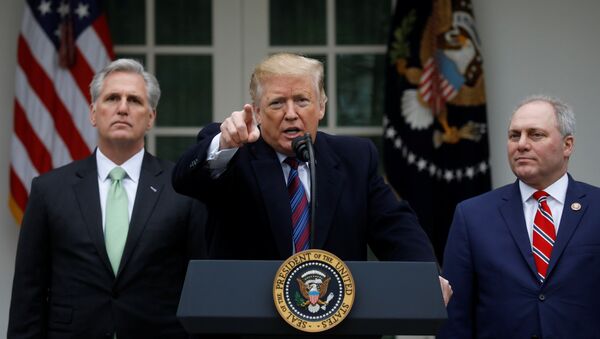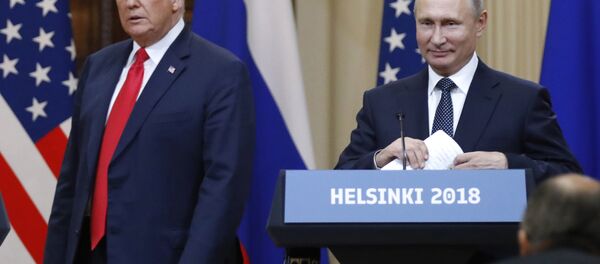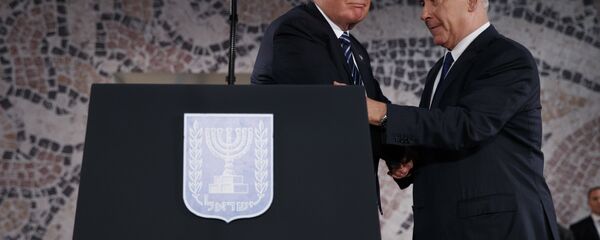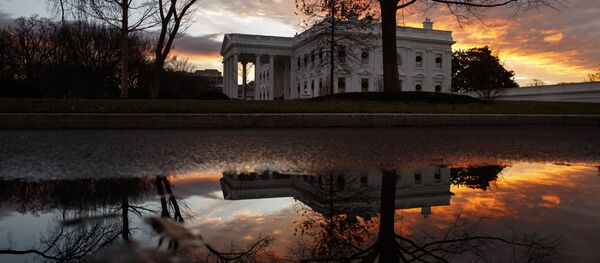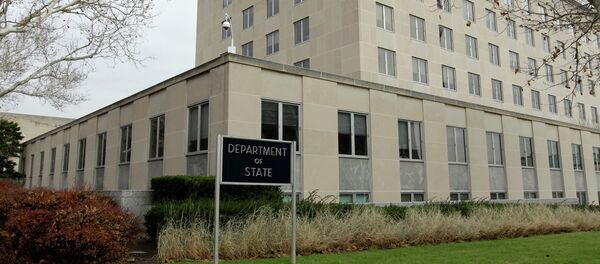Sputnik has discussed the allegations with Dr Thomas Whalen, political analyst and associate professor of social sciences at Boston University in Massachusetts.
Sputnik: The Washington Post claims that Trump is hiding details of his talks with Putin. Why is the publication drawing attention to the absence of details of their talks? What are they trying to achieve?
President Trump likes to do things his own way and he rattles the establishment, established procedures. Whether there is a sinister motive associated with it, well that is open to interpretation and I think that is something that probably the Mueller investigation could answer moving forward.
Sputnik: Why do they bring up this issue now, considering that the one-on-one talks took place quite a while ago?
Dr Thomas Whalen: Well, I think there’s this ongoing concern here that President Putin has not really allayed, at all, given what the United States would interpret as an aggressive action, especially with regards to, you know, the announcement of hypersonic missile, boasts from Putin that Russia now has the advantage militarily in this ongoing conflict with the West.
Sputnik: Recently Nancy Pelosi dubbed Trump-Putin relations dangerous. What is there to be afraid of?
Dr Thomas Whalen: Well, the fear in the West primarily is that Western unity is being split apart from one another, because our moral authority, that is the argument being given, is being undermined by Putin and kind of Russian hackers in this kind of real complicated campaign to destabilise Western governments, i.e. Brexit, France, Italy, Germany, and most recently the 2016 presidential race, where Russian hackers apparently, whether they were directed by the Kremlin or not, tried to disrupt American democracy and played various groups in American society against one another, sowing seeds of division.
So there is a real concern in the West that Russia is acting in an aggressive way and that it’s behind a lot of this disunity. Whether it is true or not, remains to be seen.
Dr Thomas Whalen: Well, again, I think President Putin brought it on himself. President Trump, when he was running for president in 2016, gave a shout-out to the Russian government to help him defeat his opponent Hillary Clinton through getting sensitive e-mails.
That has never happened in American history; I think it is very rare in international history, as well. You call out your traditional opponent to help you win an election. I think that, in combination with the fact that at the 2016 Republican National Convention, the Republican platform certainly weakened planks directed against Russia.
There seems to be this feeling in the West among many analysts that there is some sort of “quid pro quo” and that Trump won the presidential election in exchange for Russian help and having won, he is willing to make a number of key concessions to Russia.
And you know, again, that is what a lot of people feel. Whether it is true, well, I think a lot of that is going to depend on what the Mueller investigation finally comes up with this. Apparently they are investigating these claims and we will see if there is any kind of real substance to them moving forward.
Sputnik: Well, so far we have only seen the United States imposing sanctions on Russia, so no “quid pro quo”.
That is the dilemma. The Trump administration is all over the map. The president himself says one thing, but the administration does another. So, it is sowing confusion among allies and certainly adversaries internationally.
That is why we have a dysfunctional foreign policy.
Sputnik: President Trump has made conflicting statements on Russia. In 2016, he said that getting along with Moscow was very good and at the same time we have seen Trump making statements regarding Russia’s alleged interference in the 2016 presidential race: first, he said that it wasn’t Russia, and then, after he assumed office, Trump said Moscow was responsible for the DNC leaks. What do you make of his controversial statements and changing attitude towards Moscow?
Dr Thomas Whalen: Well, I think President Trump is very attuned to American public opinion and there has been growing consensus in American opinion circles that Russia did interfere in the 2016 election.
President Trump feels that it would not be good politics to go against popular opinions. So, he decided to basically come out against Russia, or basically criticise them for interfering in the 2016 election.
Though, he repeatedly says that there was no collusion between his campaign and the Russian government itself.
Views and opinions expressed in this article are those of Dr Thomas Whalen and do not necessarily reflect those of Sputnik.
